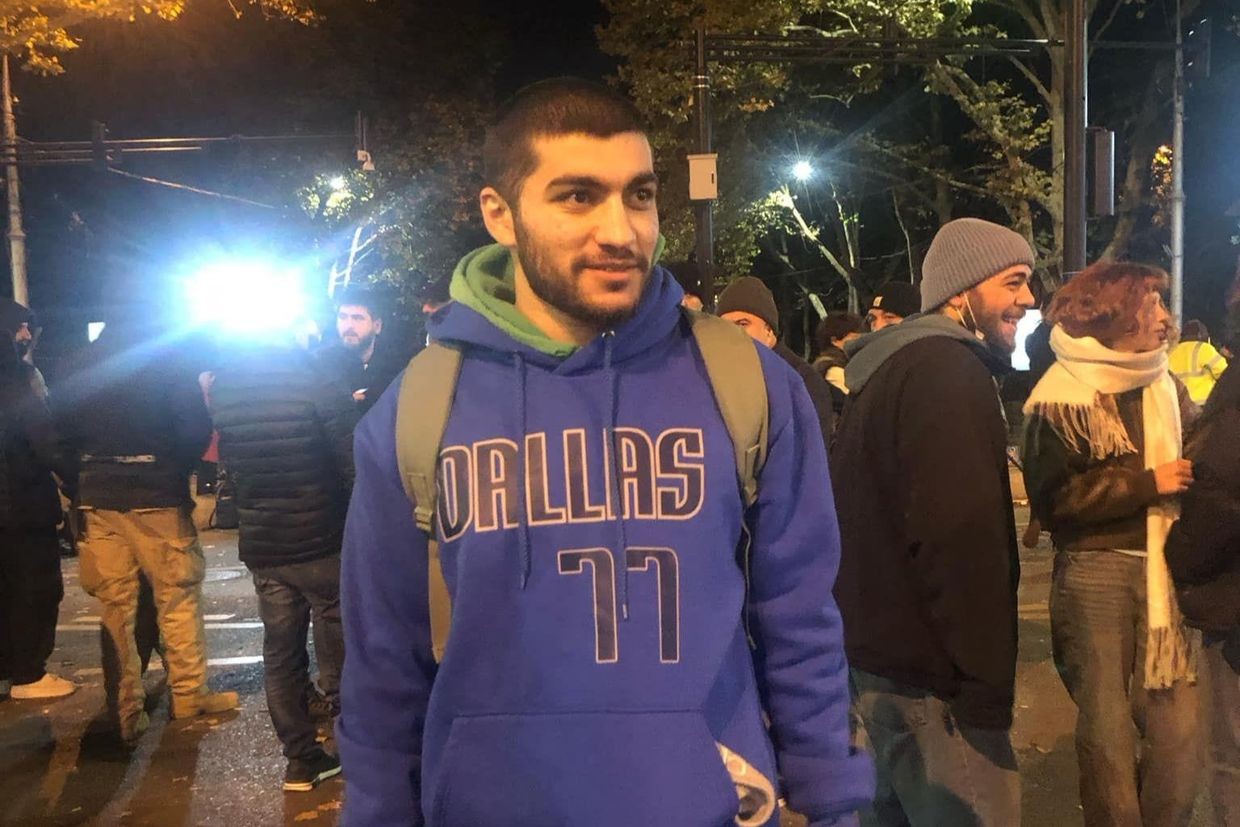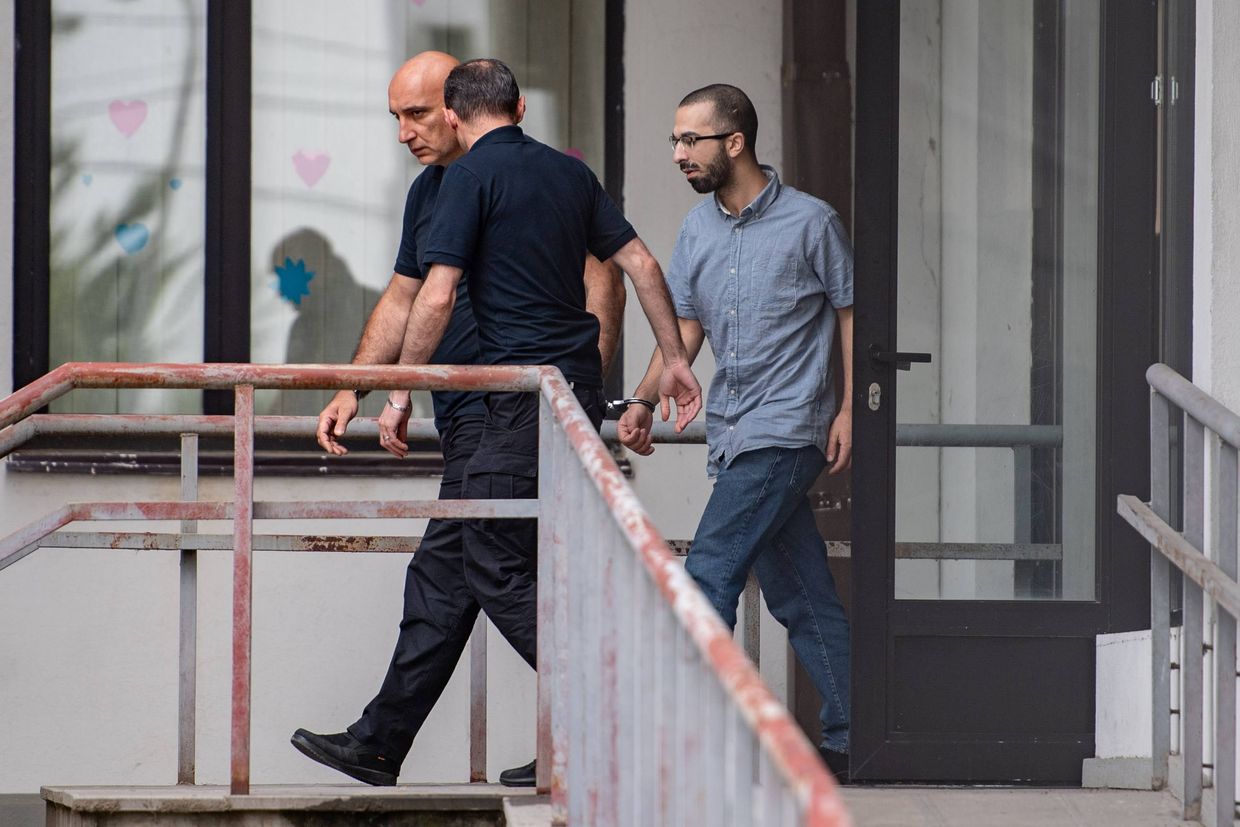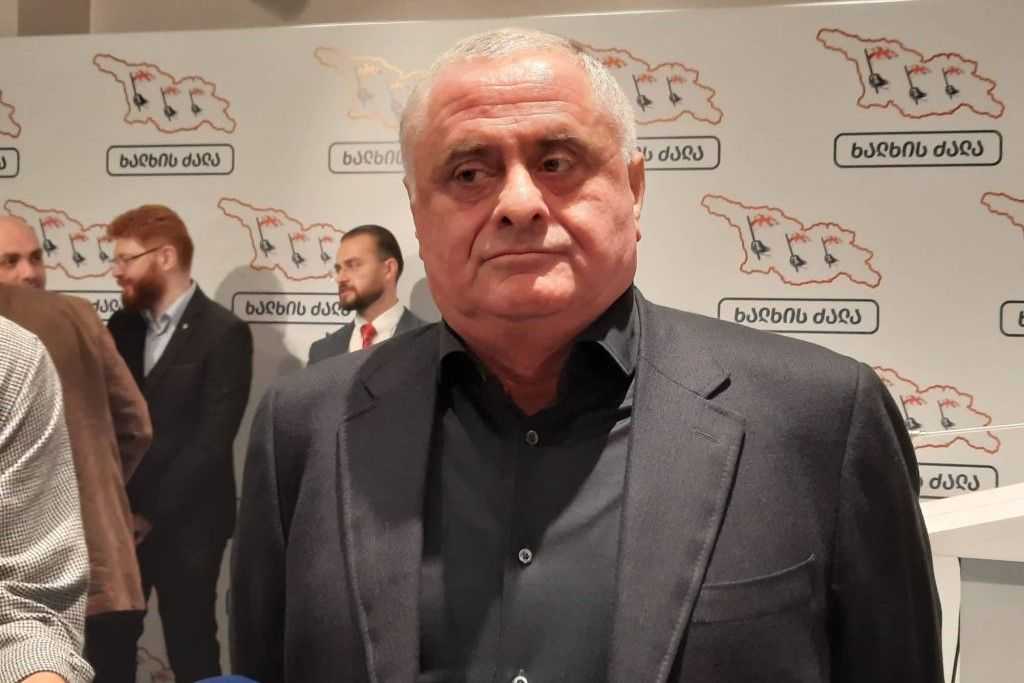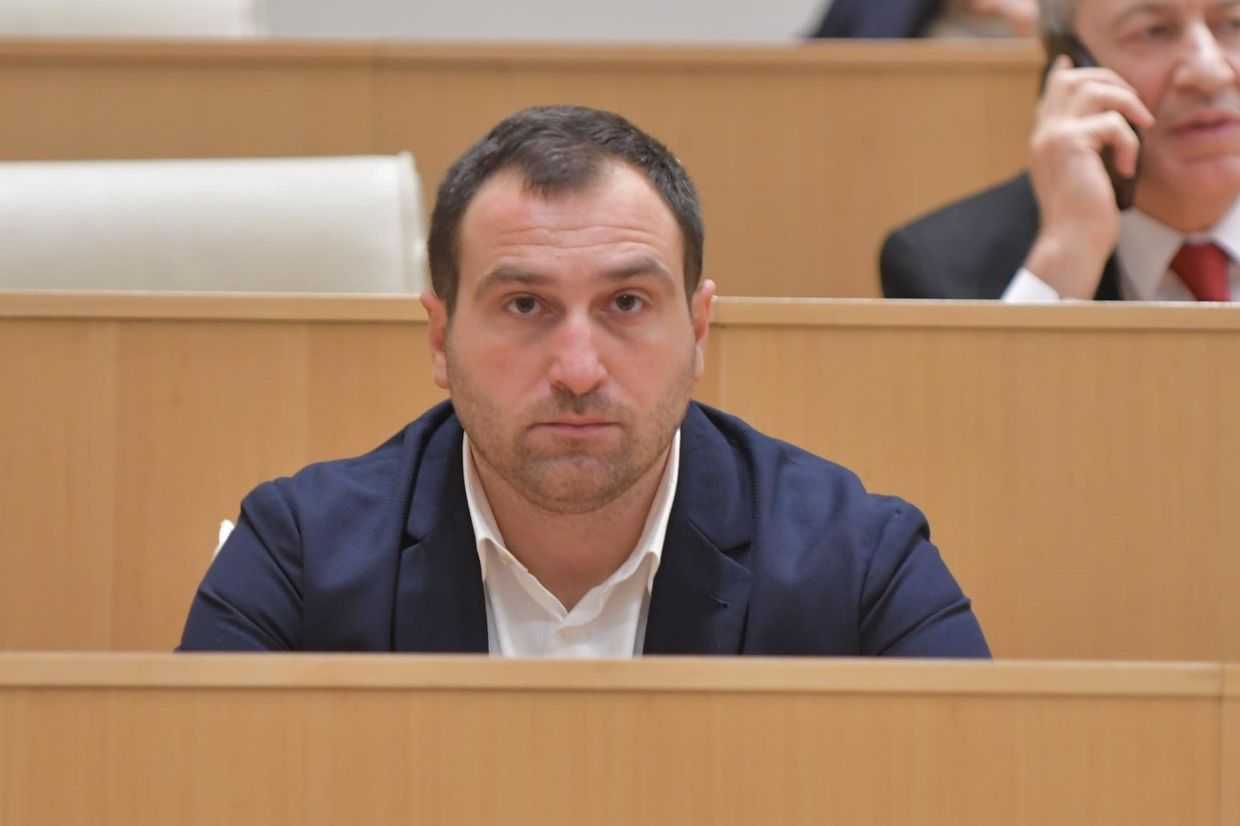
At his final statement in Tbilisi City Court, anti-government demonstrator Rezo Kiknadze, jailed on criminal charges, recounted episodes of inhumane treatment and violent threats during his detention. He also said the police pressured him to give false testimony.
Kiknadze, 27, was detained in Tbilisi during the early phase of protests against the Georgian Dream government’s suspension of its EU membership bid. He was accused of participating in group violence, a crime punishable by up to six years in prison.
Like the ten other individuals involved in the case, Kiknadze has denied the charges.
At Friday’s hearing, Kiknadze recalled that he was detained while returning home from a clinic appointment by metro. According to him, two men dressed in black stopped him inside the metro station, first took him to the metro police room, then handcuffed him, put him in a car, and drove him to Lisi Lake in the northwest of Tbilisi.
‘I intended to take out my phone to record a video. As soon as I pulled it from my pocket, they roughly snatched it from me, saying, “You won’t need this anymore”. “What are you doing? Did I do something wrong?”, I asked. They responded “You attend protests, so why are you even asking?” ’, he recalled, as quoted by Publika.
Kiknadze said the officers struck him on the head in the car, and he braced himself for a further beating, but emphasised that ‘one beating is better than what I went through’.
After being taken to the lake, Kiknadze said officers pressured him to write that he had attended the protests on the instructions of opposition leaders Nika Gvaramia, Zurab Japaridze, and Elene Khoshtaria, and that they had paid him ₾500 ($185) for his participation. They demanded from Kiknadze to further write that these politicians supplied him with fireworks and ordered him to throw various objects at the riot police.
Kiknadze then said that the police threatened to bury him alive.
‘Those standing by the [police] car window started speaking loudly so I could hear: “The tractor is already here, digging the pit, and if he doesn’t write it, let’s bury him alive”. Then one of them turned to me — or rather, leaned into the car — and said, “Hey boy, write what they’re telling you, or else, as you can see, this is what awaits you” ’, he recounted.
According to Kiknadze, the officer sitting behind the wheel asked him why he thought the dictatorship was bad and became more aggressive after Kiknadze criticised police violence against demonstrators.
‘Just to know, every member of riot police has memorised your names and addresses, and if you ever get the chance to come out [from prison], you’ll see what awaits you’, Kiknadze said, repeating the officer’s words.
‘I won’t even repeat the curses and obscene words here. Every sentence toward me was finalised with insults’, he added.
Kiknadze stated that the officers first drew up a false report claiming he had been detained on the Lisi premises instead of the metro, and then took him to the police department in the Ortachala district of Tbilisi. The pressure to provide false testimony continued, this time accompanied by threats of sexual violence.
‘One of them threatened me, saying “let’s bring him downstairs and put him on an enema tube or on a champagne bottle”. Another replied, “he might soil himself, it’s a dirty job, so let’s put on gloves” ’.
According to Kiknadze, the next stage was a search of his home, which he also attended. He mentioned at least two instances during the day when he was apparently threatened that the officers would plant illegal items — including drugs and a gun — which would result in a long prison sentence.
‘In the police department, in half a day, I saw more criminals and wrongdoers than I did in nine months in prison. We are an abnormal country. We have an unjust court system and a criminal police force’, he said, adding that he refused to write the statement the officers had demanded from him.
‘I will never blame someone else for what I have done, no matter the threats or promises they make’, he added.
According to a report by the civil society organisation Georgian Democratic Initiative (GDI), the prosecution’s evidence against Kiknadze includes a video showing ‘the defendant tossing an unidentified object with a hand motion, which hits a pole’. The file also contains a forensic photo-analysis report stating that the individual seen in the footage is Kiknadze.
Like others detained during the protests, Kiknadze did not spend a single day outside prison since the beginning of his arrest. The court repeatedly kept him in pre-trial detention.
Kiknadze is not the only detainee claiming that police pressured him to give testimony against opposition politicians. The protester’s lawyer, Archil Museliantsi, also said that his client was shown photos of Georgian opposition leaders and told he would be released if he spoke out against any of them.
The latest wave of protests in Georgia began on 28 November, when Georgian Dream announced the suspension of the country’s EU membership bid. The first phase of demonstrations saw heavy clashes and brutal police violence against protesters and journalists.
Hundreds of people have been detained, with criminal cases launched in over 50 instances. Several protesters have already been convicted and sentenced to years in prison. Their release — along with calls for new parliamentary elections — has become one of the demonstrators’ central demands.











